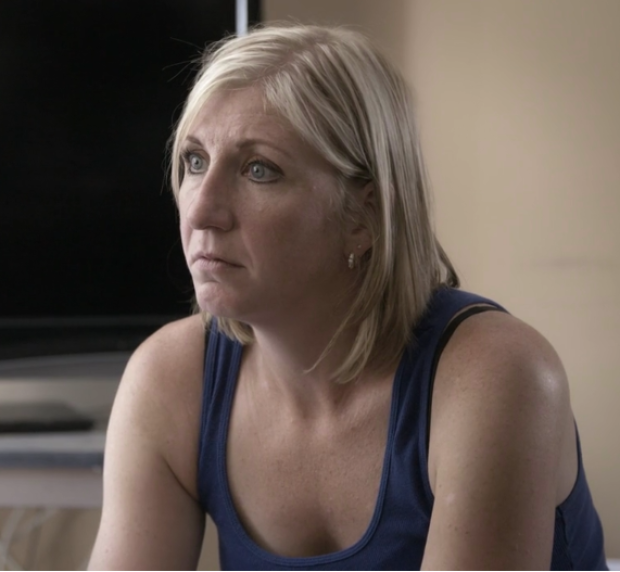Controversial TV show sparks debate about changing racist attitudes toward Indigenous people
Conversations are heating up over a television show that aims to challenge stereotypes against Indigenous people.
In the series First Contact, which airs on APTN, six white participants travel across Canada and openly air their thoughts about Indigenous people, whom participants describe as "lazy," "alcoholics," "welfare cheats," and "hopeless" among many other negative stereotypes.
They are then introduced to Indigenous people who share stories about their lives, history and realities in hopes to educate.
Jamie Sue Sykes from Chatham, Ont., is one of the cast members who went into reserves, Indigenous homes, homeless shelters and the bush to learn. "I thought they were all funded by the government by our taxpayer dollars and I thought that was the reason why they were all partying," Sykes said in a phone interview with CBC after the show aired this week.
"But that couldn't be further from the truth," she said.

Sykes says on the show she was taught about residential schools, the Indian Act, the Sixties Scoop, the reserve system and trauma. She says the experience provided her with a more compassionate view of Indigenous people.
'So many hurt community members'
But when Jesse Housty, a mother from Bella Bella, B.C., heard about the concept of the show, she questioned it and called it triggering.
"I saw so many hurt community members across the country encountering this show and feeling the trauma of it in their bones," Housty said.
Housty said while education about Indigenous people is needed to combat racism, she feels it should be non-Indigenous people educating their peers rather than Indigenous people shouldering the burden.
"As Indigenous people, I don't feel like we should constantly be in this position where we have to defend and explain our humanity to people who question it," she added.
Housty is not alone in her sentiments about the program. Other Indigenous people, like author David Robertson, have taken to social media to air their concerns about the format.
Listen to the full episode of Reconcile This about the controversy over First Contact:
'A breath of fresh air'
APTN is not the first TV network to air such a program.
In 2014, an Australian reality documentary series also called First Contact documented the journey of six European Australians who were challenged over a period of 28 days about their pre-existing perceptions of Indigenous people.
Savvy Simon, a Mi'kmaw mother who lives in Vancouver, anxiously awaited the Canadian show's debut.

"It can be so exhausting to be a Native person because there's so much ignorance and people are not taking responsibility to be educated," Simon explained.
"So I feel like [First Contact] is a breath of fresh air, for those like us who get asked those questions over and over again to save our breath," she said.
'Dark stain on Canada'
For Sykes, the show gave her a view into a part of Canada she had never seen before. Learning about the deaths of children at residential schools was the moment she said her perceptions began to be rattled.
"It was horrible, I thought oh my goodness, this is such a dark stain on Canada," Sykes said.
But some people are questioning the show's ability to change people's views.
Toby Rollo is an assistant professor of political science at Lakehead University who is originally from B.C. He is skeptical of the the TV show's ability to change the participants' discriminatory views.
"Exercises such as this are extremely resource intensive and tend not to result in lasting changes to the attitudes or actions of adults," he said.
He pointed to studies done on the "Contact Theory," which he says shows that education to prevent racist attitudes must happen much earlier on in life, before racial bias is cemented.

Read more from CBC British Columbia

